Losing weight is an uphill battle; for some people, even more so than for others. That’s why some folks decide to get help in the form of appetite suppressants. According to the newest data from the KFF, one in eight Americans is currently using a GLP-1 drug like Ozempic.
One woman decided to start using such a drug too, but was quickly faced with disapproval from her boyfriend. She asked for advice on how to either change his mind or get over it. But, in an interesting twist of events, people online started worrying more about her eating and workout habits.
A woman tried to lose weight the usual way, but had to turn to an Ozempic-like drug when it wasn’t working

Image credits: John Arano / Unsplash (not the actual photo)
Her BF wasn’t happy about it, constantly teasing and mocking her

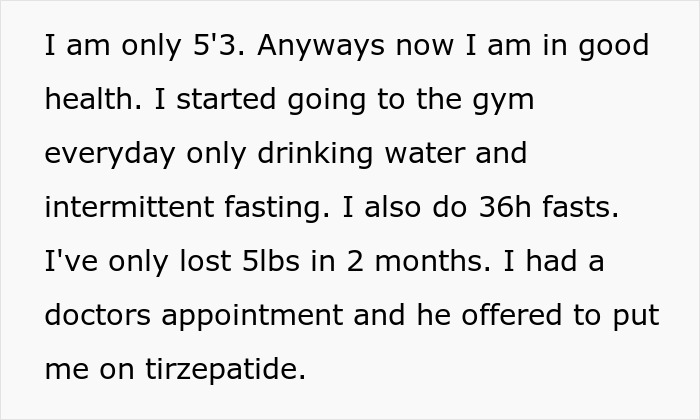
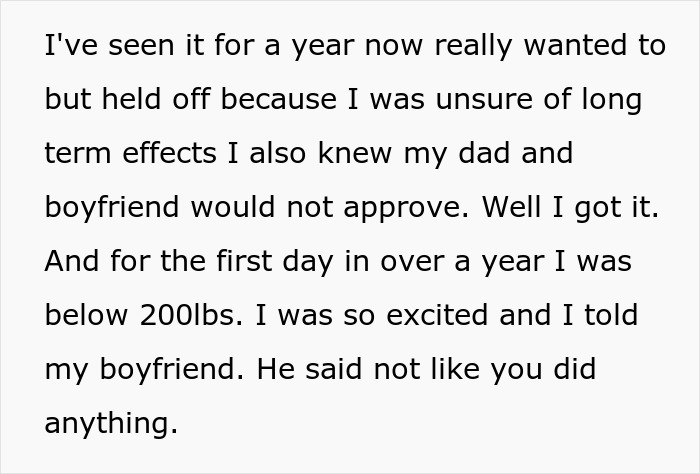

Image credits: freepik (not the actual photo)
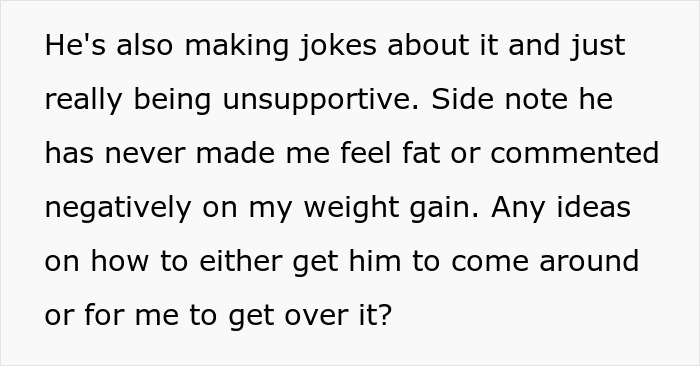
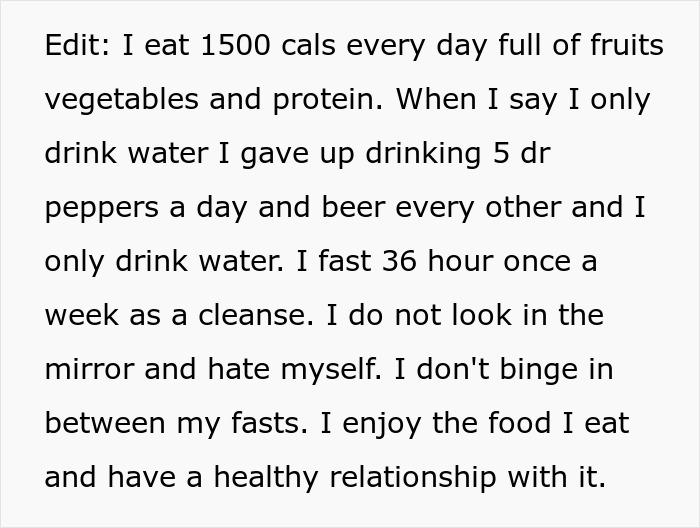

Image credits: Getty Images / Unsplash (not the actual photo)
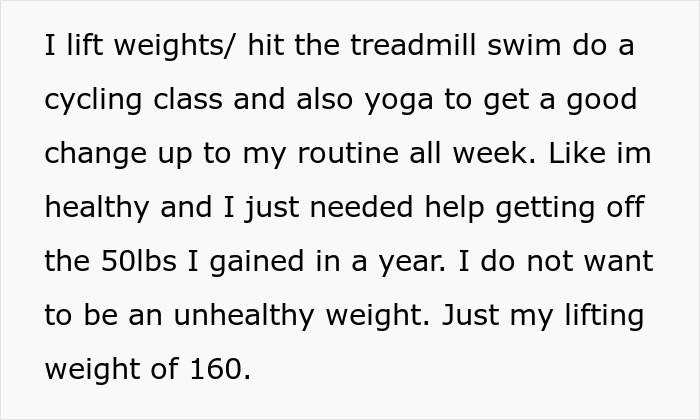
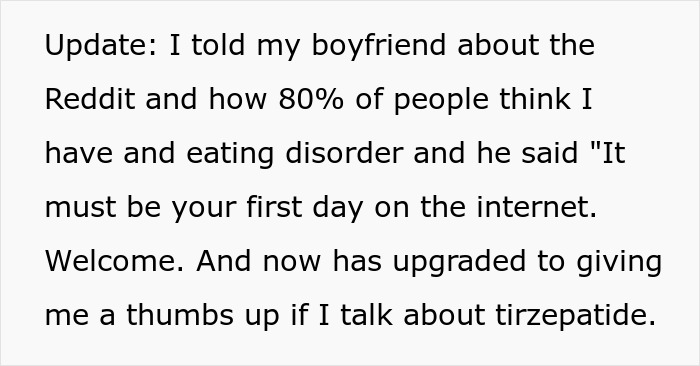
Image credits: Psychological_Rub412
GLP-1s are primarily for diabetics, but doctors prescribe them to treat obesity
GLP-1 type appetite suppressants like Ozempic, Wegovy, and Mounjaro have skyrocketed in popularity in recent years. While some people report great results in losing weight, these medications are still primarily for people with chronic conditions such as diabetes and heart disease.
About 40% of the respondents in the 2024 KFF poll said they’re taking a GLP-1 medication exactly for that. But two in five reported that they’re doing it for weight loss. And with the FDA reporting shortages of these GLP-1 medications, many people wonder if it’s ethical for people who just want to lose some weight to use them.

Image credits: Lau Baldo / Unsplash (not the actual photo)
Mounjaro and Zepbound are the medications that use the ingredient tirzepatide, which the author mentions in her post. The main ingredient in Ozempic and Wegovy is semaglutide. The former has been proven to be more effective in patients with obesity and without diabetes. It acts on two different hormone receptors, whereas semaglutide only acts against one.
The public opinions about Ozempic-like medications tend to be mixed
Ethical issues aren’t the only reason people call out the users of GLP-1s. Some folks, like the boyfriend in this story, think that using Ozempic-like medications to shed some weight is cheating.
The researcher of psychosocial determinants of obesity and weight management at the University of Cambridge, Dr. Julia Mueller, told The Guardian that the public discourse about GLP-1s is saddening but not surprising.
“The narrative around these weight-loss medications, on social media, in general media, even from some healthcare professionals, has often been very stigmatising: that it’s an easy way out, a quick fix.” So much so that some people even choose to use it in secret.
Last year, the Pew Research Center asked Americans what they think about medications like Ozempic and Wegovy. Surprisingly, 53% thought that they’re a good way for people with obesity or a health-related condition to lose weight.
On the other hand, if a person doesn’t have a health-related condition and just wants to shed some pounds, the public opinion is very different. Only 12% of Americans agree that using a GLP-1 without a health condition would be okay.
A whopping 62% believe that these medications are not a good option for those without a health-related condition who want to lose weight. What’s more, 33% of Americans believe that GLP-1s will have very little or no impact on obesity in America.

Image credits: Getty Images / Unsplash (not the actual photo)
It’s not okay to shame people for taking GLP-1s for weight loss, doctors say
But is taking Ozempic and similar medications actually cheating? Medical experts say ‘No’: using Ozempic is not a cheat code, since obesity is a chronic condition, just like diabetes or any other chronic disease.
As the obesity medicine specialist at the Ohio State University Wexner Medical Center, Allison L. Rhodes, MD explains, the hormone balance in our bodies shifts as our body fat percentage increases.
“The hormonal regulation of appetite and hunger legitimately shifts. Individuals with a higher body fat percentage may truly be more hungry and less satiated from the foods they eat even if they’re eating the exact same foods as individuals with a lower body fat percentage.”
In essence, using GLP-1s to treat obesity isn’t that much different from using medication to treat high blood pressure or high cholesterol. So, there shouldn’t be so much stigma around it.
Clare Collins, the laureate professor in nutrition and dietetics at the University of Newcastle, agrees with Dr. Rhodes. She says that using GLP-1s lowers the risk of having a heart attack or a stroke and also silences “food noise” (constant thoughts about what to eat next and whether what you’re eating is okay to eat).
“It’s a drug used to treat diabetes and obesity which needs to be taken long term and comes with risks and side effects, as well as benefits,” Collins points out. “When prescribed for obesity, it’s given alongside advice about diet and exercise.”
Since people started diagnosing her with eating disorders, she clarified her habits
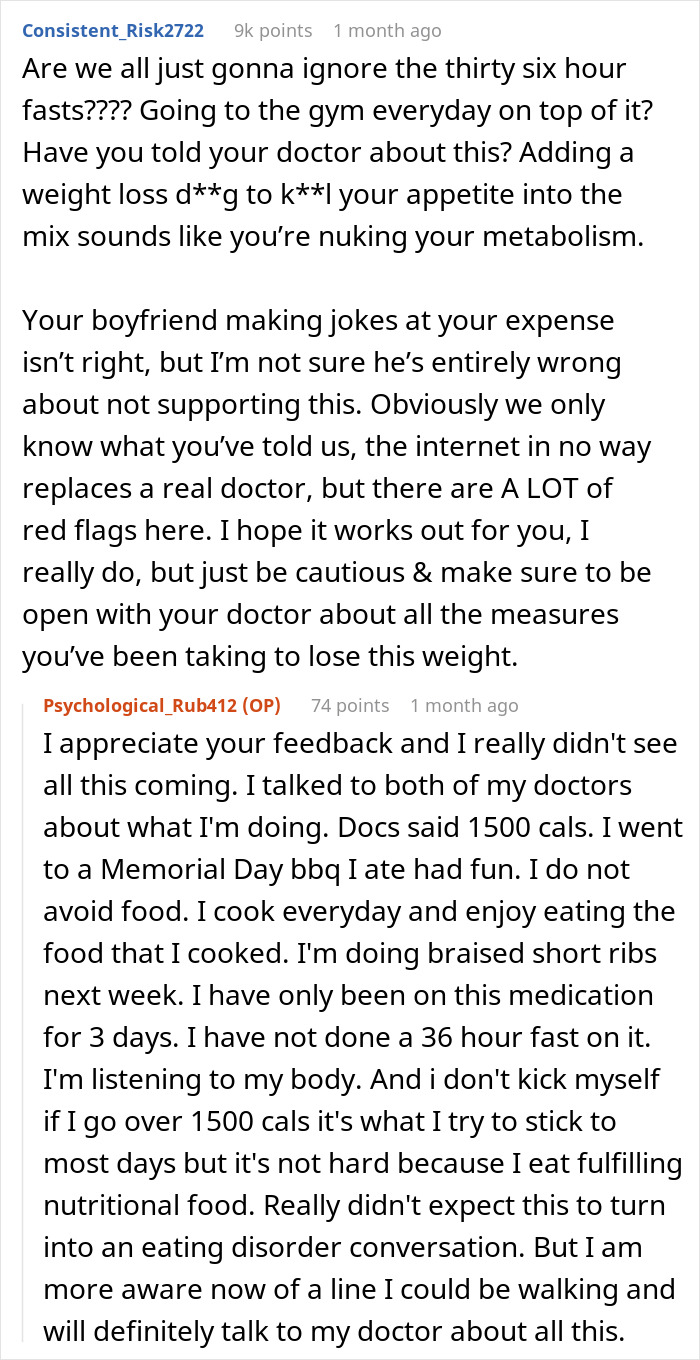
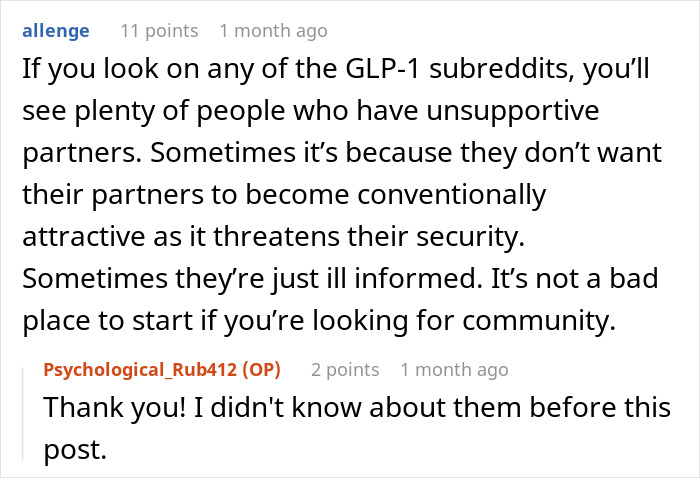
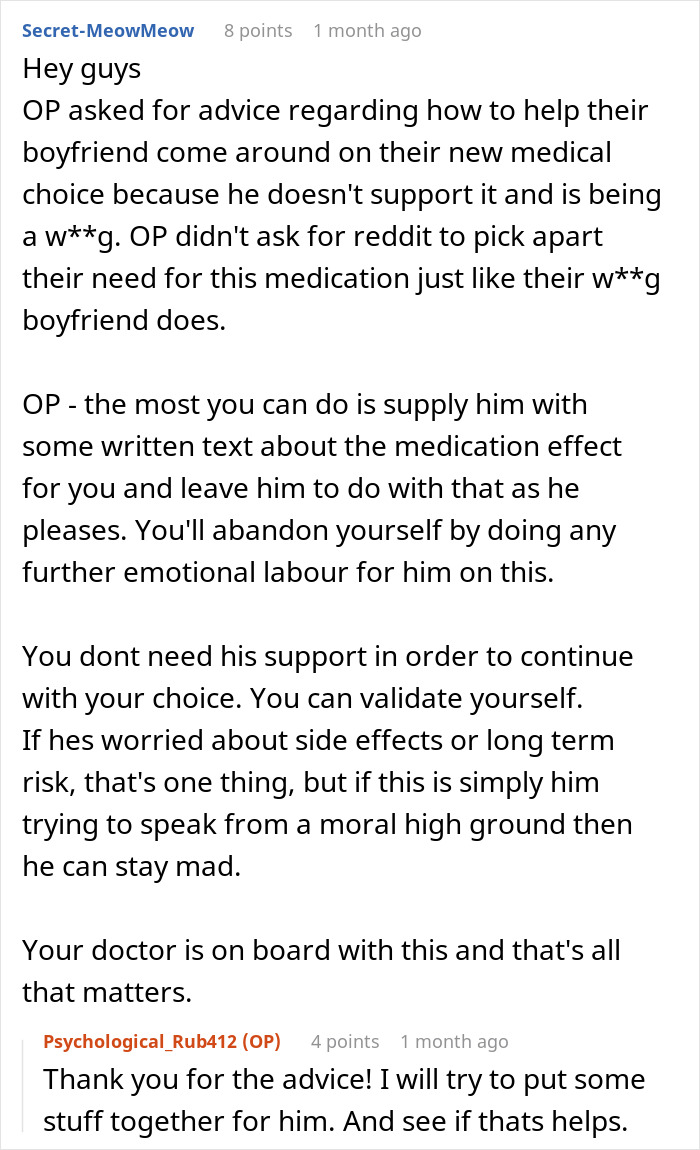
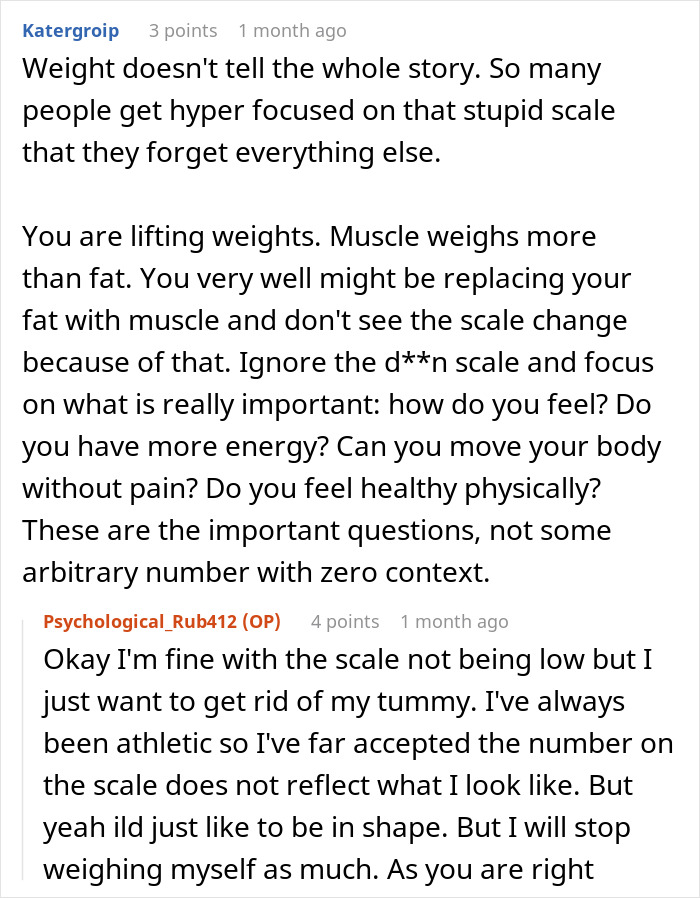
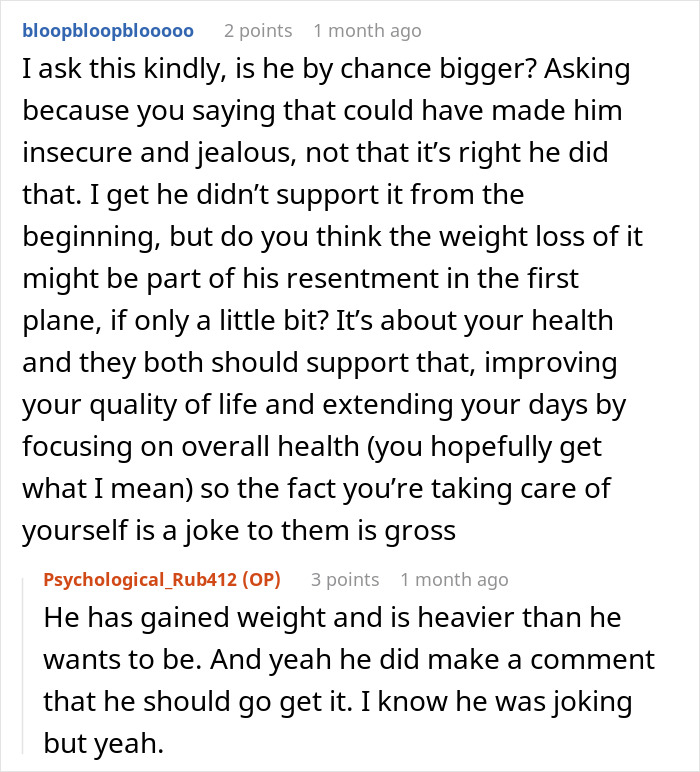
Some dragged her unsupportive BF, others shared some weight loss tips


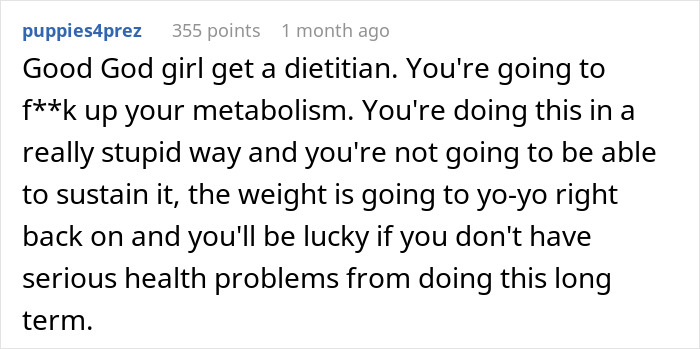
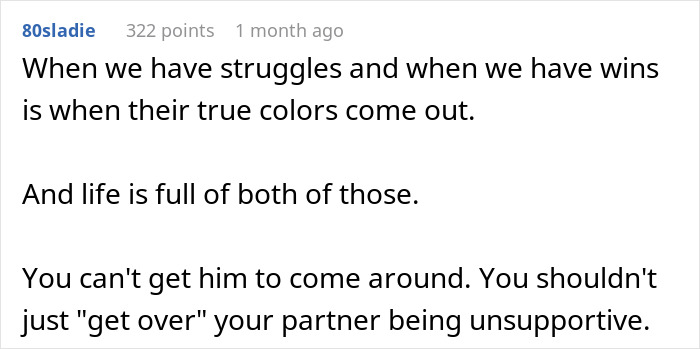
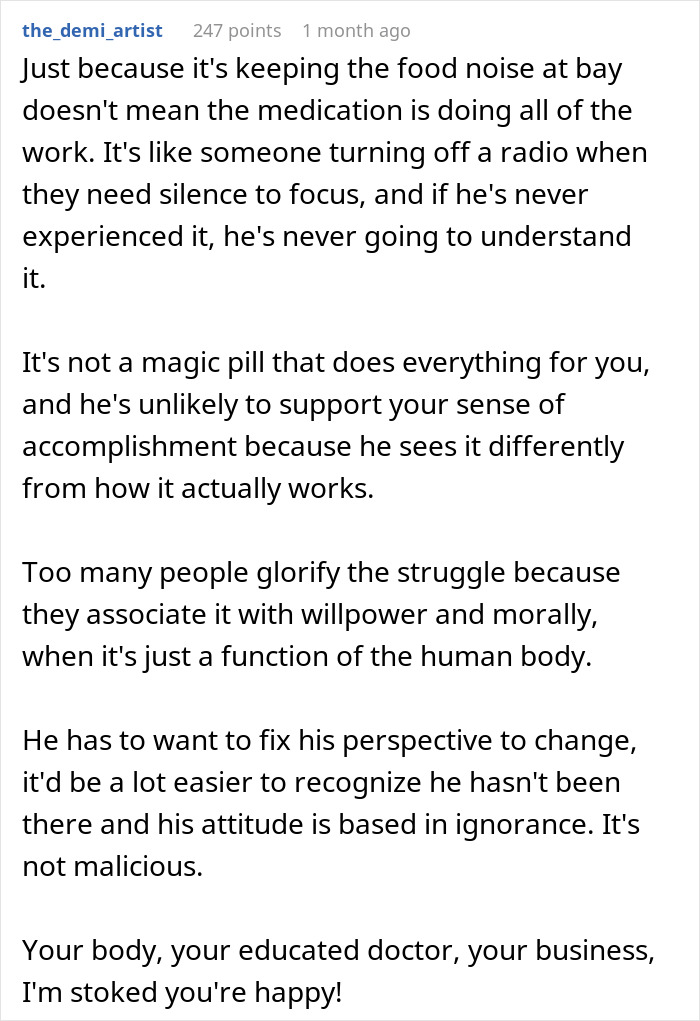
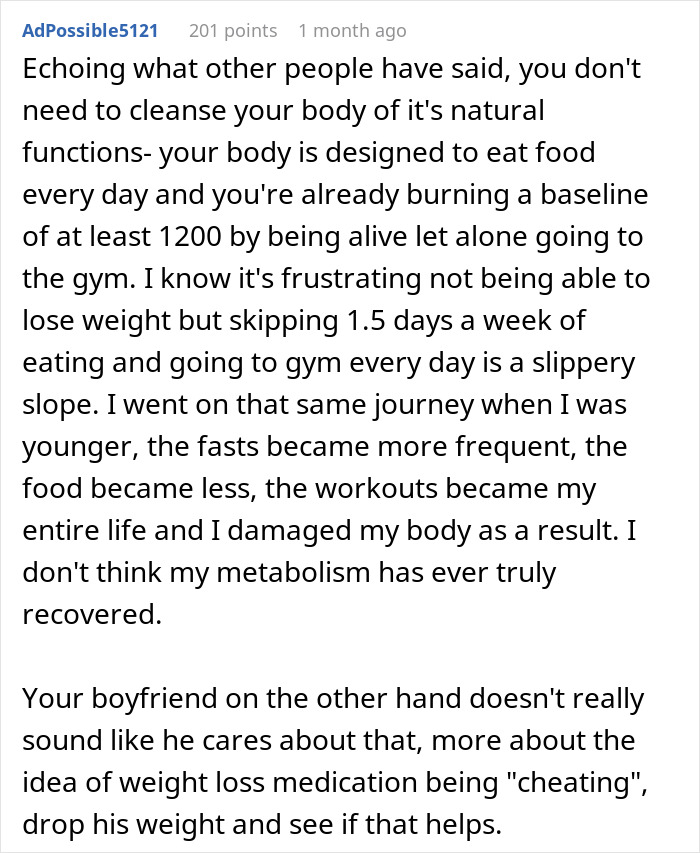


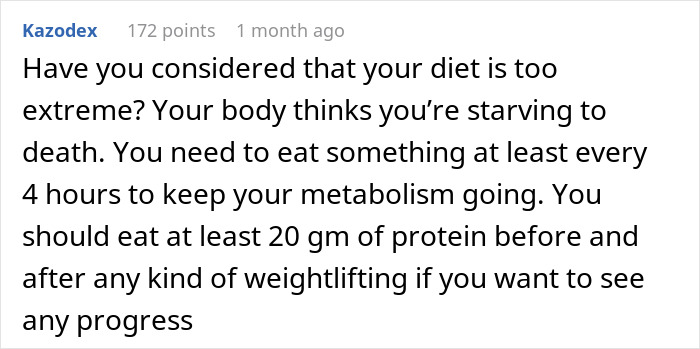
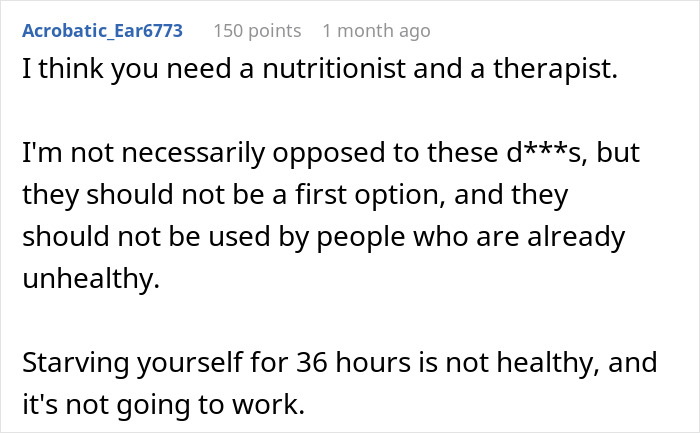



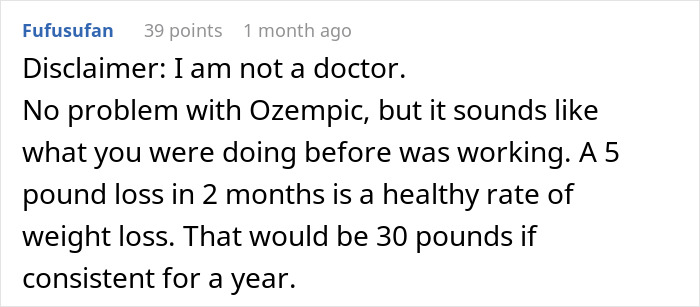



from Bored Panda https://ift.tt/cn0AbQd
via IFTTT source site : boredpanda